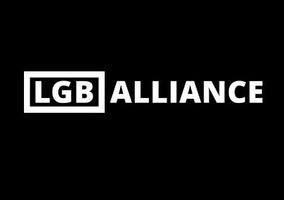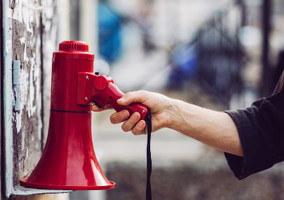The Charity Commission has registered gender-critical organisation Sex Matters as a charity.
Sex Matters – which describes having “an ethos based around the ‘gender-critical’ (sex-realist) belief that sex in humans is real, binary, immutable and important” – applied for charity status in December 2022 and was registered on 3 April 2024.
It has been established as a charitable incorporated organisation with objects to “promote human rights where they relate to biological sex, advance education about sex and the law, and promote the sound administration of the law in relation to sex and equality in the law”.
Maya Forstater, who in 2021 won a claim of belief discrimination in an employment tribunal, co-founded the charity and is its chief executive.
Forstater said administratively there is work to be done before the charity can start accepting donations.
A Commission spokesperson said: “We have registered Sex Matters as a charity following detailed consideration.
“We assess all applications for registration consistently and carefully against the charity law framework.
“As a registered charity, Sex Matters’ trustees must now meet the legal duties and responsibilities set down under charity law.”
LGB Alliance ‘paved our way’
The charity’s board includes its chair, barrister Naomi Cunningham, as well as Michael Biggs of Oxford University, Emma Hilton of Manchester University, solicitor Rebecca Bull, and chartered accountant Julia Casimo.
Cunningham said: “Charity registration means it is recognised that Sex Matters’ work is for public benefit, and that its values are worthy of respect in a democratic society, not incompatible with human dignity and not in conflict with the fundamental rights of others.
“We are grateful to LGB Alliance, which paved our way by standing up to a legal challenge against its charity registration; to the Charity Commission, which took the time to understand our application and engage with the human-rights argument; and to everyone who has supported the organisation so far.”
Last year, transgender support charity Mermaids lost a legal challenge to strip LGB Alliance of its charitable status.
The Commission’s decisions on registration are appealable in the First-tier Tribunal, by the applicant organisation, its governing body, or anyone else whose legal rights may be affected by the decision.
Kate Barker, CEO of LGB Alliance, said the charity was “delighted” by the Commission registering Sex Matters as a charity.
“I'm particularly pleased that the unsuccessful challenge to our charitable status helped to pave the way for Sex Matters,” she said.
“At the very least, it meant that the poorly constructed, bad-faith arguments of our detractors were brought to wider public attention.”
Forstater: ‘We are refusing to be silenced’
On the charity’s registration, Forstater said: “Women and men all over the UK who think that sex matters are refusing to be silenced, shamed or smeared. We are proud to be a part of this movement.
“We will continue to work with organisations, grassroots groups, activists, experts and politicians from all parties who bravely stand up for women’s rights, child safeguarding, gay rights, freedom of speech and the integrity of our institutions.”
Sex Matter’s website states that the organisation believes “a person’s biological sex cannot change, and it impacts upon their life and relationships with others”.
It says that “individuals should not be discriminated against because they identify as trans or adopt aspects of appearance associated with the opposite sex”.
“But they do not have the right to compel anyone else to pretend they are a member of the opposite sex or to force anyone to share intimate spaces with them on this basis,” it reads.
Related Articles











